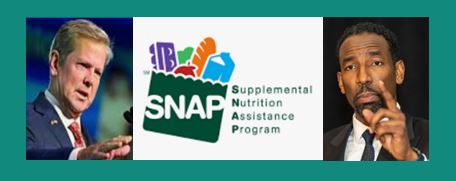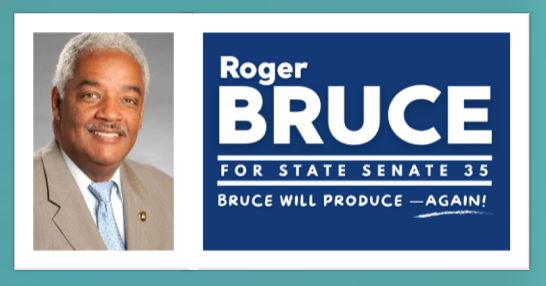Contrasting Responses to SNAP Funding Lapse in Georgia from Kemp and Dickens
Share

The recent lapse in Supplemental Nutrition Assistance Program (SNAP) benefits due to a federal government shutdown has highlighted starkly different approaches by Georgia state and local leaders.
Governor Brian Kemp has refused to release state funds to prevent the lapse, arguing that Georgia cannot legally use state resources to supplement a federally administered program. He cites guidance from the U.S. Department of Agriculture (USDA) stating that state funds cannot reimburse federal programs. Kemp maintains that the responsibility to resolve the funding gap lies with Congress, not the state, and contends that using the state surplus to “bail out” the federal government would be legally and fiscally inappropriate. Critics, including Democratic lawmakers and advocacy groups, argue that this stance leaves families at risk, as over 1.4 million Georgians are set to lose SNAP benefits without immediate relief.
In contrast, Mayor Andre Dickens of Atlanta has taken proactive local action to mitigate the crisis for residents. Through the ATL CARES initiative, Dickens has:
– Instituted a moratorium on residential evictions and water shutoffs through January 31, 2026, or until the federal shutdown ends.
– Partnered with organizations like the Atlanta Community Food Bank, Goodr, and Hosea Helps to distribute emergency food, including 6 million pounds of groceries funded by $5 million from Food Bank reserves.
– Mobilized city departments and local nonprofits to provide rapid support for families, ensuring that basic needs are met while federal action remains stalled.
“No resident should go hungry or wonder how they will put food on the table because of a government shutdown or a failure to agree on policy decisions,” said Mayor Dickens. “We care and are standing in gap—not as a substitute for federal benefits, but as a bridge to ensure our residents’ basic needs are met.”
The contrast is clear: Kemp’s approach emphasizes legal caution and federal responsibility, prioritizing adherence to federal law over immediate relief, while Dickens’ response emphasizes local action and community protection, leveraging city resources and nonprofit partnerships to meet the urgent needs of residents.

This divergence highlights a broader debate over state versus local responsibility during federally driven crises. While the federal government and state officials await congressional resolution, local leaders like Dickens are taking direct measures to prevent food insecurity, demonstrating how municipal action can serve as a critical bridge in times of federal inaction.
Here’s a side-by-side visual comparison chart of Governor Kemp and Mayor Dickens’ responses to the SNAP funding lapse. This can be used in a newsletter, website, or social media post for clarity and impact:

| Aspect | Governor Brian Kemp (State Response) | Mayor Andre Dickens (City Response) |
|---|---|---|
| Primary Action | Refused to release state funds to cover SNAP lapse | Launched ATL CARES emergency initiative to support residents |
| Legal Justification | States cannot legally use surplus to fund a federal program; USDA guidance prohibits reimbursement | Uses city authority and reserves to provide emergency relief; issues administrative orders for moratoriums |
| Focus | Adherence to federal law and fiscal rules | Immediate support for families at risk of food insecurity and utility disruptions |
| Impact on Residents | Over 1.4 million Georgians potentially lose SNAP benefits in November | Provides emergency food (6 million pounds) and protections against evictions/water shutoffs for Atlanta residents |
| Collaboration | Primarily federal/state dialogue; urges Congress to act | Partners with Atlanta Community Food Bank, Goodr, Hosea Helps, Atlanta Public Schools, and other nonprofits |
| Public Messaging | Emphasizes state’s legal limits; “not the state’s responsibility to fix a federal funding issue” | Emphasizes moral obligation and community support; “We care and are standing in gap” |
| Criticism / Support | Critics argue inaction harms families and fails to use state surplus | Praised for swift action and leadership during crisis; bridges federal gap |



